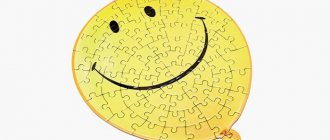Listen to the audio version of this article on our podcast:
First, let's define what it actually is.
Like normal fatigue, mental fatigue
(also known as psychological fatigue or mental fatigue) is a condition that results from intense or prolonged work. The only difference is that here the brain gets tired, not the body. Such fatigue is accompanied by a feeling that the brain cannot function properly, that it seems to be covered in fog. Because of this, even simple tasks begin to eat up a lot of time.
Remember how, at the end of a hard working day, you reread the same paragraph over and over again, unable to understand what is even written there. This is what it is.
Mental fatigue can be acute or chronic. An acute one occurs, for example, at the end of the hardest working day and goes away after a short rest. This kind of fatigue is normal. But if ignored, it can become chronic and lead to burnout.
Start keeping a personal diary
There are many benefits to journaling daily. One of them is that it is a great way to clear your mind.
Taking notes forces us to think through what we write carefully enough so that our thoughts are expressed clearly and understandably. Thus, journaling helps clarify them.
A personal diary will come to the rescue if you have problems and need to solve them. Or when you need to understand yourself, use your creativity, heal relationships, develop intuition.
Even greater benefit can be gained from reviewing your diaries from cover to cover over time, especially at the end of the current year. Revisiting old notes can help you review lessons you've learned, evaluate and acknowledge your progress, and figure out where to go next.
The number of aspects of life that you can write about in a diary is truly endless, as are the number of varieties of diaries.
You can write about your goals, dreams, plans, family, obligations, achievements, observations, emotions, dreams, ideas - in a word, about anything.
What is the ability to relax
Often people forget how important it is to give yourself rest. The ability to relax physically and emotionally is a useful function of the body, which can be forgotten over time. Especially if you have been under constant stress and conflict for a long time.
Internal problems cannot find a way out if you do not know how to relieve tension without resorting to the help of a psychologist. Nevertheless, there are such ways, and there are many of them. It’s enough to find a suitable option for yourself and remember to use it from time to time.
The ability to abstract yourself from unpleasant surroundings and thoughts is the ability to relax. You can do this almost anywhere where you can retire for a few minutes. Failures, problems and other negativity will gradually recede from you.
Relax your mind
Today it is common to elevate attention and concentration to a cult. However, research shows that rest and defocusing are equally important for normal brain function.
By relaxing and letting your mind wander, you may experience a sudden surge of inspiration, come up with an innovative solution to a problem, discover unexpected connections between different phenomena, and recognize shades where you previously saw only black and white.
So, from time to time, allow your brain to go into energy-saving mode. This will not only help you use it to its full potential, but will also save you from mental fatigue.
The optimal solution is to take 10-minute rest breaks every hour. Plan your schedule around these intervals.
During your break, do something relaxing.
Listen to music, draw, cross stitch. You can just take a walk and dream. The main thing is that you do not feel stressed or think about a task that requires concentration.
Be sure to give yourself longer breaks - free evenings, weekends, annual vacations.
Brain work and rest mode
Everyone knows the division of people into owls and larks. It has a good reason. Brain activity changes throughout the day:
- 6-7 hours is the best time to learn something new;
- 8-9 - logical thinking comes into play;
- 11-12 - break for rest and lunch (food for the brain - pleasant music or books);
- 13-18 - the brain is ready to solve complex problems that require high concentration;
- 18-21 - energy, as well as brain activity, decreases;
- 21-23 - it is better to leave the remaining work for the morning.
Each person is individual, so the time of onset of a particular period may shift. However, they come in that order.
Get organized
Raise your head and look around. What do you see? Mountains of documents? Rubble? Cluttered shelves and cabinets? A whole box of projects to take part in; instructions to be studied; queries that need to be answered? What's on your monitor? An inbox full of unread messages?
The physical environment also affects the ability to think clearly. In chaos, it is very difficult to concentrate and prioritize. So spend a little time getting organized—on your desktop and other horizontal surfaces, in your cabinets and drawers, on your computer and phone.
Remove unnecessary contacts and photos, throw away everything unnecessary, put things in their places, sort documents, answer letters. By creating order around you, you will immediately feel relief.
Meditation
How to relax your brain after hard work? If stress does not allow you to relax even on weekends, then meditation will be the best help. If performed correctly, it will not only allow you to abstract from problems, clear your head of thoughts, but also provide protection against future stressful situations that overtake you everywhere.
Thanks to meditation, it will be easier to bear stress, as well as those things that led to strong anxiety and created tension. Small troubles will not seem like a disaster. Just 1 procedure already has a positive effect on the nervous system: you feel strong relaxation, problems are forgotten.
Unload all tasks from your head
Have you ever been unable to fall asleep because of obsessive thoughts that craved your attention? Perhaps you suddenly remember unfulfilled tasks or promises several times a day?
The fact is that our brain naturally remembers and retains all interrupted and unfinished actions. These are called incomplete cycles.
If they are not dealt with, they accumulate and cause overload, which leads to stress and anxiety. To gain control, you need to make one very important change in your behavior: learn to not hold anything in your head.
For this you will need:
1. Calendar. It should include a simple template that shows the months and days of the week. This is the basis where you can store information about what needs to be done at a certain time and what will happen on specific days.
2. List of next actions. It will include specific small steps that you need to complete as soon as possible. Deciding where to record an activity (calendar or list) depends on whether it can be assigned a specific time or date.
Keep in mind that if an action takes less than two minutes, it must be completed immediately. Get rid of it, close the cycle and get it out of your mind!
3. List of projects. A project is any result that requires more than one activity or session of work to achieve.
At least once a week, you should look at this list and determine the next steps for each of your projects.
4. “Someday/Maybe” list. These are all problems that you can solve later, but not now; things you would like to try under favorable conditions.
This includes movies you want to watch; books you wouldn't mind reading; trips you dream about; wish lists.
5. A checklist is a list of actions or items for certain situations, a description of repeated procedures (for example, “How to pack a suitcase for a trip,” “List of things for a backpacking trip,” “Possible gifts for the holidays”).
Creating a checklist can save you time and make your life easier in the future. You won't have to waste energy making the same decisions over and over again.
6. Folders for deferred items. This will include anything that does not involve action and may be needed later. These are driving directions, recipes, guarantees, driver's licenses, passwords to websites, contacts, useful articles, and so on. They might come in handy one day, and if you don't have them, you'll have to spend time looking for them.
By creating such a system, you will give your brain freedom to be more productive and creative.
To stay in control, periodically review all lists, check the contents of the system and keep it up to date and in working order.
Let's get to know our brain
The brain is the most complex organ of the human body. Scientists have spent decades studying it. But still it has not been fully studied.
Few people think about the load that is placed on this organ. Every second he has to solve hundreds of problems. It controls all processes occurring in the body, including breathing, sensory organs, blood circulation, and movement.
It seems that during the night's rest, when a person is practically immobilized, the brain should relax. However, in reality this is not the case. Even at night, hard work awaits him. And there are three reasons for this:
- Abundance of information. Its quantity increases day by day, and the ability to take it improves extremely slowly. The brain is ready to receive and process data. However, often they do not bring any benefit (gossip, rumors), as a result of which information “garbage” accumulates, which is difficult to get rid of.
- Too many tasks. Most employers require their employees to do the almost impossible: to do several things at once. On the one hand, such skill is a sign of professionalism. On the other hand, it is severe stress for the brain, leading to chronic fatigue, decreased performance, and anxiety. As a result, none of the tasks are completed 100%.
- Obsessive thoughts. Every person faces them. They are connected not only with pressing or everyday problems, but with something more global, for example, the meaning of life, the correctness of a particular choice. If such thoughts appear in your head regularly, you can prepare for panic attacks, nervous breakdowns, and deterioration in physical health.
These factors lead to brain poisoning, which negatively affects the condition of the entire body. Therefore, from time to time you need to arrange unloading.
Remove everything unimportant from your life
Have you ever suffered from overwork? Did you feel like you were paying a lot of attention to the little things? Have you been constantly but fruitlessly busy? Did you feel like you were running as fast as you could, but weren’t moving? Most likely, too much unnecessary, distracting, unnecessary or unpleasant has accumulated in your life.
Ask yourself: “What do I really want to achieve? What do I strive for most? What is truly important to me? Having determined your priorities, try to concentrate on them and get rid of the rest. There will be less chaos in your life - and your head.
You need to be able to refuse not only activities that you don’t like, but also things that you like.
For example, it is better to choose one hobby and give it maximum attention than to be torn between ten different hobbies.
Instead of getting overwhelmed, think about what steps you need to take to get closer to your main goals.
Why am I tense?
The reasons why you experience constant tension and fatigue can be very diverse. The most common of them are:
- overload at work;
- conflict situations on the street and at home;
- financial difficulties and unforeseen situations;
- stress from unpleasant news;
- nervous tension due to constant noise;
- frequent negative thoughts.
As a result, a lot of negative energy accumulates inside you. It puts pressure not only psychologically. Instinctively, your body tries to protect itself from the influence of negativity. As a result, you get tight muscles, poor sleep and frequent pain in different parts of the body.
Residents of megacities are more often exposed to stressful situations. This is due to the increased speed of life, which is why it is so important to be able to relax quickly without wasting precious time. Otherwise, your body will not be able to cope even with everyday activities.
Distance yourself from your thoughts
Are you haunted by past mistakes and conflicts for which you cannot forgive yourself? Does consciousness itself replay the same memories? Or is your head filled with anxious thoughts about the future? Or maybe you constantly hear the voice of your inner critic? Try the following exercise.
Sit up straight and relax. Concentrate on your body and breathing.
Now focus on your hearing. Take in all the sounds that surround you. Feel how they arise and how some displace others.
After five minutes, switch to your thoughts. Watch them as extraneous events that arise and disappear on their own, just like sounds.
Observe them detachedly - as if you were watching a movie or looking at clouds floating across the sky. They come and go. Notice how these thoughts make you feel, but don't try to change anything.
Watching the seething mind is like watching a mischievous child. When a child notices that they are being looked at, they act less, and our brains react in a similar way.
The activity automatically decreases, which ultimately brings a feeling of peace and helps clear the mind.
Bonus: useful links
David Allen's TedX talk:
Great interview with David Allen about getting things done:
Smthngs is a GTD manager that can be used in the browser, online, offline and as an app.
Gtdagenda.com is an online service for managing tasks and tracking progress.
Trello, Notion, Asana - services for project management
GTD-Q test: https://gtd.com.ua/ru/gtd-q-2/
Music
Relaxation music helps, you have to like it. A person receives positive emotions after listening to his favorite tracks. It relieves stress and eliminates unnecessary thoughts. Favorite relaxation music always leads to a feeling of happiness and euphoria. Even sad melodies lift your spirits if they are pleasant.
Music that relaxes the brain can be of different types. For some it's classic, for others it's modern pop. There are people who like to include sounds of nature. Silence is also music. If your head is tired of various sounds, you can simply stay in silence for a while, and then the tension will disappear.
Relaxing tea
When it is difficult to relax with your usual tea, you can choose tonic types, for example, milk, light, dark oolong and Tie Guan. Drinking tea can be a meditation, but in this case, stress must be approached responsibly, paying attention to the choice of every detail. You should choose a beautiful teapot and cup, sit in a cozy place in a comfortable position.
For relaxation, it is better to choose herbal infusions. Chamomile, mint, lemon balm, St. John's wort, and valerian root have a calming effect. These plants can be used either separately or as a collection:
- Chamomile and mint leaves should be mixed in equal quantities.
- St. John's wort (1 tsp) and viburnum berries (3-4 pcs.) are added to boiling water (1 glass). You need to brew the drink and let it steep for 5-10 minutes.
- Mix mint, chamomile, and valerian root in equal parts. Infusion lasts 10 minutes.
This drink should always be consumed when you feel tired. Relaxation comes very quickly, tea gives a great mood to all people.
Yoga
Various yoga poses relax, calm the mind, eliminate stress and chronic fatigue. If you perform asanas regularly, you will be able to get rid of insomnia. Yoga gives peace and allows you to find harmony. The following poses are used for relaxation:
- Shavasana. You need to lie on your back and close your eyes. Legs and arms are spread apart. Palms should be facing up. The body needs to be relaxed. You should breathe evenly, eliminating all thoughts. Then there is a feeling of heaviness and warmth that spreads throughout the body. You must remain in this position until your body and mind relax.
- Bhunjangasana. You need to sit on your stomach and place your palms on the floor so that they are at shoulder level. Slowly straighten your arms, lifting your chest off the floor and arching your back. When your arms are straight, tilt your head back, looking up. Shoulders need to be pulled back. The pelvis should not be lifted off the floor. While in this position, you need to breathe evenly.
With regular yoga practice you will be able to normalize your condition. The exercises can be done at home.
Walks
How to relax your brain after hard work? This requires leisurely walking, which perfectly clears your head of parasitic thoughts. Moreover, not only a walk, but also contemplation of what is happening has a positive effect. With the help of monotonous eye movements, the work of the brain hemispheres is synchronized, nerve clamps that appear during emotional shock, negative thoughts, and obsessions are eliminated.
Walking restores the functioning of the nervous system. It is enough to allocate 20 minutes for this. You need to walk calmly, just like you need to breathe. After some time, you will find that unnecessary thoughts disappear from your head.
Physical exercise
How to relax and turn off your brain? Psychology advises doing physical exercises:
- several bends forward;
- stretching;
- turns the body to the right and left;
- raising your arms up, tilting to the right, then to the left, stretching your arms;
- dancing to rhythmic music.
Belly breathing exercises are effective. Swimming relieves stress. Aromatherapy helps. For this purpose, special aroma lamps with oils, sticks or candles are used. It is enough to add aromatic oils to a warm bath: before use, mix them with salt, otherwise they will remain in the upper layer of water and can cause a burn.











